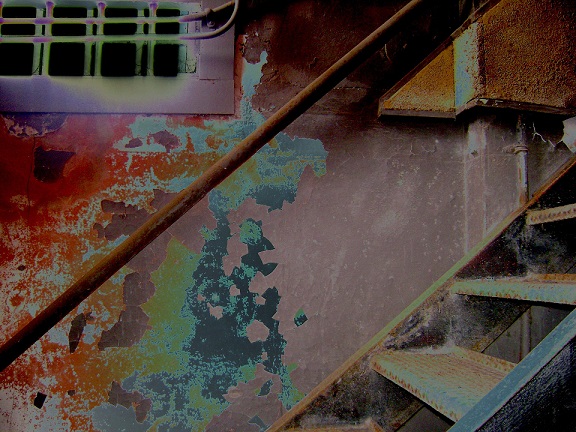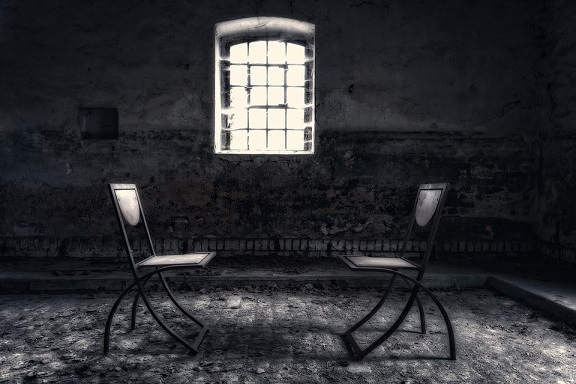Neither the fact that his papers were being processed nor his mobility problems were enough to stop this Venezuelan being detained for nearly 4 months in a detention centre for immigrants in the United Kingdom. Here he describes the raids, the scant medical attention and the tricks of the Home Office to force deportation.
 Marcos Ortiz F.
Marcos Ortiz F.
“I was at a music festival with a friend because he has stands with various things. He told me he had some spare tickets and simply gave me one and I went in.” At 32 years of age, José (his real name has been changed) remembers this day in 2016 when he was arrested by the Home Office.
“They arrived with plenty of people and like 12 vans. They began asking for people’s passports. I had mine – Venezuelan of course. I showed it to them and they told me ‘you’ve over stayed.’ I replied ‘yes’ but that I was being processed and to call my solicitor or my partner. They didn’t call anyone.”
A native of Venezuela, José had been in the UK, a country he entered as a musician to play with his band, for four years.
“Things in my country were already getting worse. I had a construction business with my father and the government expropriated it. Basically, I had no clear future over there and decided to stay here.” Today, José is a member of Freed Voices an association which helps detained immigrants, as a result of his own experience.
He lived in London with his girlfriend, a Venezuelan with a Spanish passport with whom he planned to get married and have a family. His father died and since he was here, the impossibility of going to the funeral – given that he would have forfeited the process which was underway in England – made him fall into a depression which ended his relationship too.
 He was in this state of depression on the day of the festival.
He was in this state of depression on the day of the festival.
“I’ve got problems with my knees and so I was sitting down on a bench. I saw them come in but as my case was ongoing I had nothing to be afraid of. In fact there was no confrontation.”
He explained that he had an ongoing application but was nonetheless brought to the exit. “I had never been surrounded by so many policemen nor had I ever had a problem with the police. I had never before been subjected to so many questions. Then, yes I did go into a panic. I felt like a criminal as if they were accusing me of something and yet I didn’t know of what. It was very intimidating.” The officials inspected his things, took his telephone, gave him some orange overalls and put him in a cell. He spent the night in the police station on a concrete bed.
The following day still in the same clothes he was brought to the detention centre. “I thought they were going to deport me there and then. Everything is thrown into doubt, you don’t know where they’re taking you or how much time you’re going to be where you are. They’ve got the attitude ‘we’ve got you, you’re screwed’.”
Within a few hours he arrived at the detention centre. “The first thing you see is the amount of fences and barbed wire. You realise you’re entering something akin to a prison. I had a breakdown, I felt that this right here and now was the end.”
 The life of a detainee
The life of a detainee
“All you see before entering the rooms are bars. They took me to the medical centre and asked me a few questions, nothing deep. I told them I had problems with my knees.”
Confined long term in a room for six, he got to know immigrants from Portugal, Italy, Poland, Rumania and Arab, African and Latin American countries. One of them had been there 8 months.
‘”The place and rules are designed quite simply to break you. They check the dorms twice a night. Though it seems ridiculous you can work, it’s legal. They pay you 1 pound an hour.” José worked teaching English. “In secret, I helped with cases because I began to read up on the laws. There were very simple cases where I did a couple of small things and they could leave right away.”
“There were three minors. The Home Office said they were not minors but there was no way of corroborating it. But they were teenagers, 15-16 years old, one looked 13, all of them Muslim. I saw them crying in the corridors, they didn’t speak English. If it’s hard for anyone in there imagine what it was like for them.”
“And there were also very old people. One gentleman had been 40 years in the country with a family and they were trying to deport him. This chap was a grandfather and didn’t even speak the language of the place he originally came from.”
 The tough process
The tough process
“This is the only place where people don’t look forward to the weekend. Your solicitor is not working but the Home Office is. So they start calling you and say that you’ve got a plane ticket. You spend the whole weekend thinking they’re going to deport you. It is torture.”
To get out, José applied for bail. ”For the judge it is important you have a place to stay, that you’re not a threat to society and that the Home Office doesn’t have a date to deport you,” he explains.
“You’ve got to have ‘sureties’ – people who put money up as a guarantee. If you’ve got 500 pounds and you’re in a position to put up 300 pounds via this person the court sees this as sufficient. If a detainee has been involved in a crime of some nature, the judge can ask for 5,000-10,000 pounds.”
The most difficult thing is to get to the point in the trial where you can ask for bail. You have to tell the court in a very elegant way what they have done wrong. In my case it was the fact that they didn’t take into account my mobility problem.”
The trial took place in Newport where the sureties, judge and Home Office lawyer are. The detainee follows everything from a screen in the detention centre. José was unsuccessful at his first attempt. The Home Office were very quick and a day before the trial appeared with plane tickets. He preferred to withdraw the case and his solicitor cancelled the flight. “There I learnt that there is a business. Someone is earning money. The more eager you are to leave the longer you spend there. No one comes and is out within a couple of weeks.”
 The consequences of being confined
The consequences of being confined
“There were depressed people who didn’t leave their rooms – they didn’t come for meals. There were people who with the stress became violent. I witnessed how this person who was in the gym lifting weights suddenly grabbed one and started breaking all the windows. He completely lost it”, he recalls.
Limited support was provided by charities. ”Detention Action, Asylum Welcome and Music in Detention are charities that are genuinely needed – they can make you feel you’re a human being, that you’re not a criminal.”
“I never saw psychologists. The guards treated me better than the nurses. I fell in one of the showers and twisted my knee. The guard took me, put me in a wheelchair and took me to the infirmary. When we arrived the male nurse told me off”. And added: “And what happened to you! You have to be careful! Get up! I couldn’t get up, I couldn’t even take off my shorts. They don’t believe you’re in pain. They treat everyone badly.” After 3 months and 3 weeks of confinement José was free. Even so, every fortnight he must report for signing at the Home Office and he suffers from the after effects of detention. He says: “I have problems sleeping. I normally get up at the same time they used to come into the dorm. If I see a patrol light I get nervous. They put this fear into my head that I am a criminal. Now I suffer the paradox that I am out but I don’t feel free. I am unable to feel free.”
(Translated by Nigel Conibear – Diptrans IoLET MCIL – nigelconibear@gmail.com) – Photos: Pixabay












.jpg)












